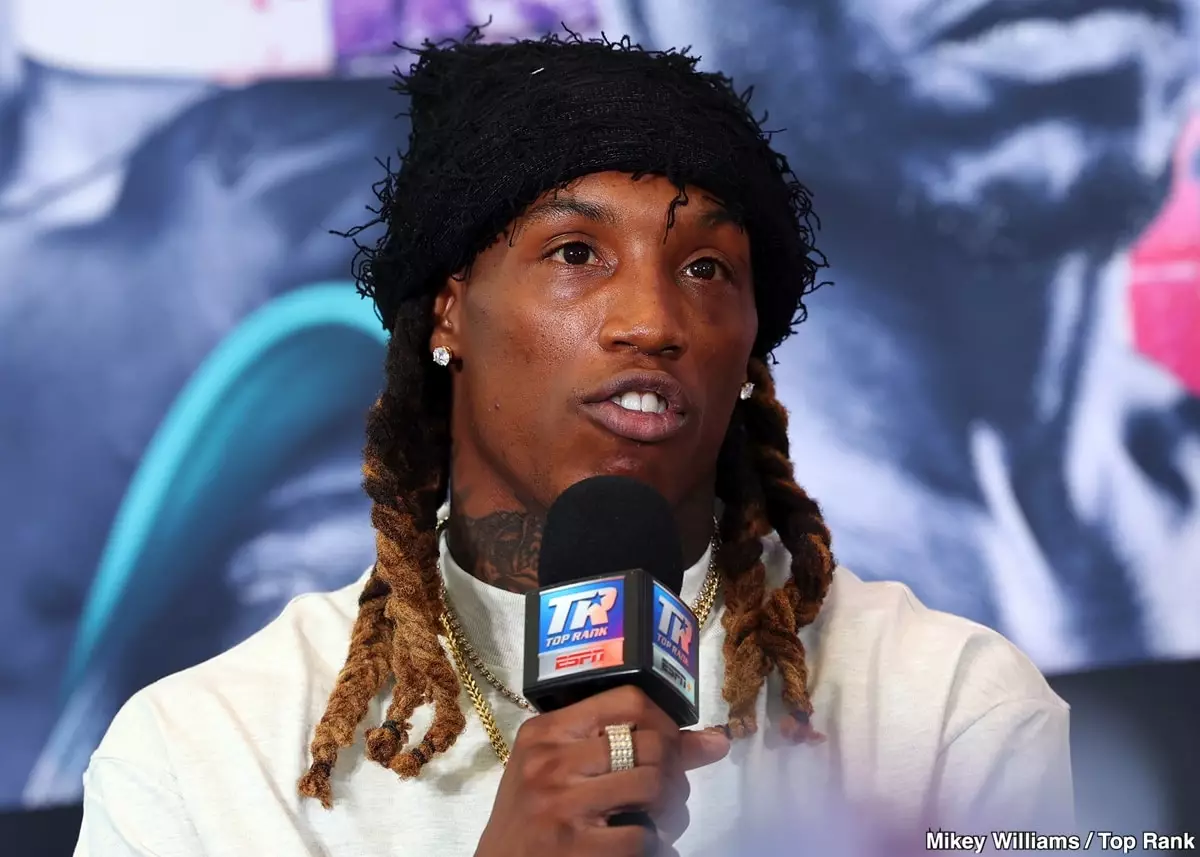In the world of professional boxing, the mental aspect of the game can often be just as crucial as physical ability. O’Shaquie Foster, a talented but controversial figure in the super featherweight division, finds himself amid a turbulent point in his career. After a contentious loss to Robson Conceicao on July 6th of this year, Foster’s reflections on that bout—and his readiness for a rematch—illustrate a larger narrative about accountability, ambition, and the entertainment value demanded by fans.
Foster’s assertion that he deserved to win his previous fight against Conceicao raises questions about self-awareness in high-stakes sports. With a record standing at 22-3 (12 KOs), it’s clear that Foster has experience; however, his tendency to brush off the judges’ decision as an error demonstrates a troubling disconnect between his in-ring performance and the reality of boxing as a competitive sport. Foster only displayed glimpses of offensive prowess, contrasting sharply with the relentless activity of Conceicao, the 2016 Olympic gold medalist.
Despite his protests, the fight showcased Foster’s cautious, safety-first approach, which appeared to frustrate both the fans and the judges. Boxing is not solely a test of skill; it’s also a performance where audience engagement plays a pivotal role. Conceicao’s consistent aggression not only won him the fight but also the crowd’s favor. Foster’s reluctance to adapt his style based on the atmosphere suggests a lack of strategic mobility that may cost him in future bouts.
Foster’s unfortunate mindset mimics that of many athletes who find it difficult to embrace criticism or acknowledge their shortcomings. When he claims to have outlanded Conceicao, he clearly overlooks the evidence against him. His insistence that he “could have done more” reflects a moment of self-awareness, yet it seems too little, too late. Following such disastrous showings, fighters must analyze their behaviors and methods, transforming losses into lessons rather than excuses.
Instead of taking full responsibility for his below-par performance, Foster’s comments hint at an unwillingness to fully engage with critical feedback. While he mentions looking to the “positives” and recognizes the need to ramp up his intensity, such statements can come across as mere platitudes rather than a genuine overhaul of his boxing philosophy. This apathy masquerading as confidence may lead to repeated pitfalls down the line.
The boos that resounded from the audience during Foster’s fight highlight a fundamental truth about modern boxing: fans expect spectacle. In a sport often criticized for its dull proceedings, fighters who refuse to engage are at risk of alienating their supporters and jeopardizing their careers. Foster’s admission that he has “given three fights this year” seems to ignore the essence of entertainment that audiences seek in these events.
Foster’s reaction to the crowd’s discontent—indifference mixed with an underlying belief that his record alone qualifies him for continued fame—can foster a sense of entitlement. It is crucial for any fighter to realize that their popularity is contingent not solely on their skills but also on their ability to connect with fans, create highlights, and generate excitement. The boxing community is unforgiving to those who forget this vital aspect, leading to dwindling opportunities and support.
As Foster prepares for his rematch with Conceicao this Saturday at the Turning Stone Resort Casino, there lies an opportunity for redemption—if he approaches it with the proper mindset. A failure to adhere to the lessons learned from their first encounter could spell disaster, pushing Foster further down a path of mediocrity. He must channel the criticisms into a fierce determination to engage more meaningfully. Fans deserve to see a fighter that exhibits heart and tenacity, but it takes more than just that—it necessitates a commitment to evolve and entertain.
Ultimately, the outcome of Foster’s impending match will rest not just on his physical capabilities but on his willingness to embrace change, acknowledge past missteps, and connect meaningfully with the audience that decides his future. In boxing, every bout, every round counts; in this unforgiving sport, complacency is one of the most dangerous opponents. Will Foster rise from the ashes of his previous defeat or will his attitude continue to serve as an anchor, dragging him deeper into obscurity? Only time will tell.

